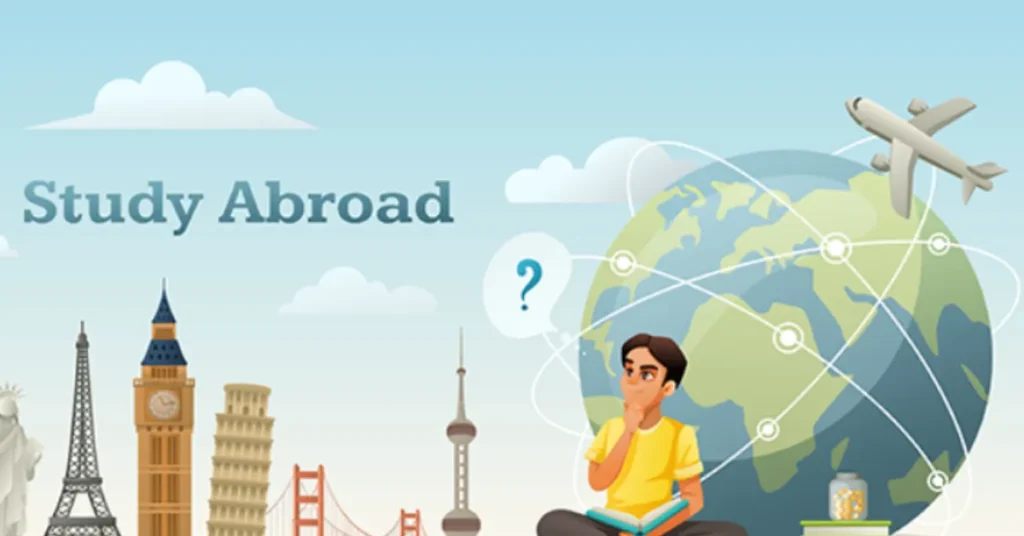In today’s interconnected world, the opportunity to study abroad has become a transformative experience for students across the globe. Study abroad programs offer a chance to immerse oneself in different cultures, gain international exposure, and enhance academic credentials. This article explores the various aspects of study abroad programs, including their benefits, types, popular destinations, and tips for successful participation.

About Study Abroad Programs
Study abroad programs are educational experiences that allow students to pursue academic courses in foreign countries. These programs can range from short-term summer sessions to full academic year exchanges, and they can be organized through universities, colleges, or independent organizations. They not only enhance students’ academic portfolios but also help them develop essential life skills such as adaptability, independence, and intercultural communication.
Overview of Study Abroad Programs
| Aspect | Description |
|---|---|
| Duration | Short-term (a few weeks to a few months) or long-term (one year) |
| Eligibility | Varies by program; typically includes GPA requirements |
| Types of Programs | Exchange programs, direct enrollment, internships, and research |
| Funding Options | Scholarships, grants, and financial aid available |
| Popular Destinations | Europe, Asia, Australia, North America, and South America |
Types of Study Abroad Programs
- Exchange Programs: Students swap places with a partner institution abroad, allowing them to attend classes at a foreign university while hosting a foreign student in their home institution.
- Direct Enrollment: Students enroll directly in a foreign university, gaining access to a broader range of courses and a full immersion experience.
- Internships: Many programs offer internships that allow students to gain practical experience in their field of study while living abroad.
- Research Programs: These programs enable students to conduct research under the supervision of faculty members in a different academic setting.
Benefits of Studying Abroad
Studying abroad offers numerous benefits, including:
- Cultural Exposure: Experience new cultures, languages, and traditions firsthand.
- Academic Growth: Access diverse curricula and unique academic perspectives that enhance learning.
- Career Opportunities: Stand out in the job market with international experience and cross-cultural skills.
- Personal Development: Gain confidence, independence, and adaptability by navigating a new environment.
Popular Destinations for Study Abroad Programs
- United Kingdom: Home to prestigious institutions like Oxford and Cambridge, the UK offers rich historical and cultural experiences.
- Australia: Known for its high-quality education and diverse landscapes, Australia attracts many international students.
- Germany: Offers a wide range of programs in English, and is known for its strong emphasis on research and technology.
- Spain: A vibrant culture and a growing number of English-taught programs make Spain a popular choice.
- Japan: Known for its unique blend of tradition and modernity, Japan provides an exceptional study environment.
How to Choose the Right Study Abroad Program
When selecting a study abroad program, consider the following factors:
- Academic Goals: Ensure the program aligns with your academic and career objectives.
- Destination: Choose a location that excites you and complements your interests.
- Budget: Factor in tuition, living expenses, travel costs, and potential funding options.
- Support Services: Look for programs that provide comprehensive support, including orientation, housing assistance, and academic advising.
Tips for a Successful Study Abroad Experience
- Research Your Destination: Familiarize yourself with the culture, language, and customs of the country you’ll be studying in.
- Stay Organized: Keep track of deadlines for applications, visas, and accommodations.
- Be Open-Minded: Embrace new experiences and challenges, as they are integral to personal growth.
- Engage with Locals: Build connections with local students and residents to enhance your cultural experience.
- Document Your Journey: Keep a journal or blog to reflect on your experiences and share them with others.
Conclusion
Study abroad programs present a unique opportunity for students to expand their horizons, both academically and personally. With careful planning and an open mind, students can reap the rewards of studying in a foreign country, equipping themselves with the skills and experiences necessary for a successful future. Whether through academic exchange, internships, or direct enrollment, the adventure of studying abroad awaits those ready to take the leap.